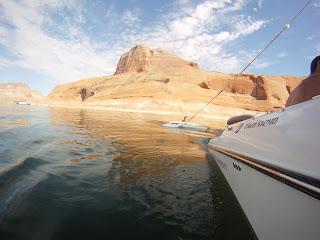As parents, of course we're anxious for our children to learn things like responsibility, honesty, loyalty, kindness, fairness, and hard work. So we try every day to model these things; to be good examples of them. But of these attributes, hard work is a little bit unique in that if Kat and I simply model hard work and show our kids a really, really good example of hard work, that doesn't help our kids to learn to work hard. In fact, many of us can point to examples of the opposite, where hard working parents produce lazy children who expect their parents to wait on them. Our good example doesn't really ensure that our kids know how to, and are willing to work.
Of course what is required is to teach our children to work... hard. And it turns out, that's hard work- much harder than simply doing it yourself. So the temptation is to unload the dishwasher myself in under two minutes rather than take five minutes to get one of the children to even START unloading the dishwasher. Which then may give rise to the next temptation: to just tell our children to go attend to some chore. That way we can just put it out of our minds. This is an advanced maneuver we should only use for older, previously well-taught children. When we do this with little kids, we just a start a game of pretend where we pretend to ask them to do something, and they pretend that they will.
For example, we get into trouble with our younger children if we just tell them to go tidy their room when we are unwilling to go with them, work beside them, and show them how hard work is done- and the kind of attitude we should have about it- that it's a privilege. So if we can't feel that it's a privilege ourselves (and sometimes we don't), then it gets risky to work beside them, because they'll sniff us out for the liars that we are; kids aren't stupid. In those cases, Kat has been a wonderful example of honesty:
"I know this doesn't seem like much of a privilege to clean up this big mess that Jeffrey made. It doesn't feel like a privilege to me either. What do you think we can do to get this cleaned up and feel better about it?"
Our kids have responded amazingly to this kind of honesty. Many times they'll think of fun ways to clean up, but mostly I think simply allowing them to feel what they are feeling let's them take ownership of it, and then they are empowered to change what they are feeling. The proximity is essential because it lets them know we're in it with them and that they matter more to us than the chore at hand.











